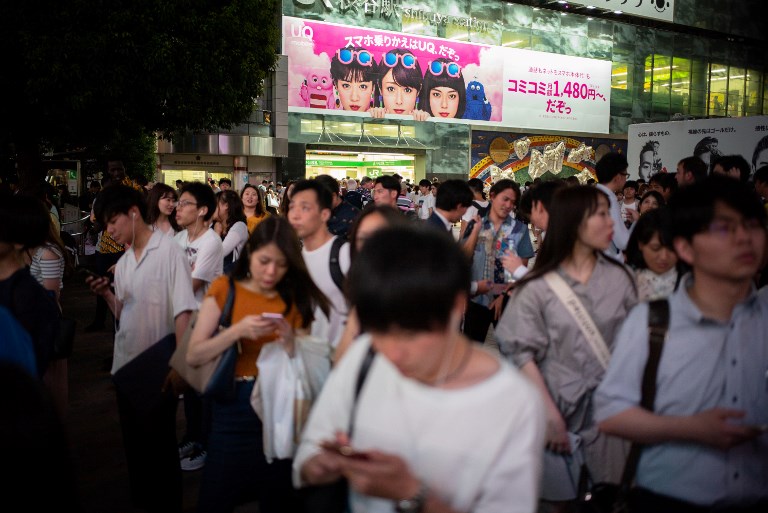
This photo taken on June 30, 2018 shows people looking at their phones in Shibuya in Tokyo. / AFP PHOTO / Martin BUREAU
TOKYO — About 60 percent of Japanese elementary and junior high school students said their family members use their mobile phones or smartphones even when they are spending time together, the highest such figure among a survey comparing youths in Japan, the United States, China and South Korea.
The survey was conducted by the National Institution for Youth Education (NIYE) from September to November last year, and received answers from a total of about 10,000 students in the four countries.
Asked if “even during family time, we are all using our smartphones,” 58 percent of Japanese elementary school students and 65 percent of Japanese junior high school students said this situation occurred “often” or “sometimes.” Both figures were the highest among the four countries surveyed.
In particular, Japanese respondents who said they “often” have such experiences accounted for 24 percent among elementary school students and 26 percent among junior high school students — nearly twice as many as the corresponding ratios among the U.S. respondents, who gave the second-highest number of such responses to the survey.
Also, 44 percent of Japanese elementary school students and 37 percent of Japanese junior high school students said they were “often” or “sometimes” told by their parents “I don’t have time,” when they try to talk to them. These ratios are also the highest among the four countries surveyed.
“Japanese people tend to favor communication that does not delve deeply into each other’s feelings,” said Tetsuya Murakami, director of the NIYE’s Research Center for Youth Education.
“This is why Japanese families tend to have superficial relationships in which each family member uses their smartphone even when they spend time together,” he said.
The survey also indicated that children were more likely to say they didn’t like spending time with their parents the more frequently they saw family members using their smartphones when they spend time together or were told “I don’t have time,” when they try to talk to them.
“Japanese parents should interact with their children more seriously,” Murakami said.